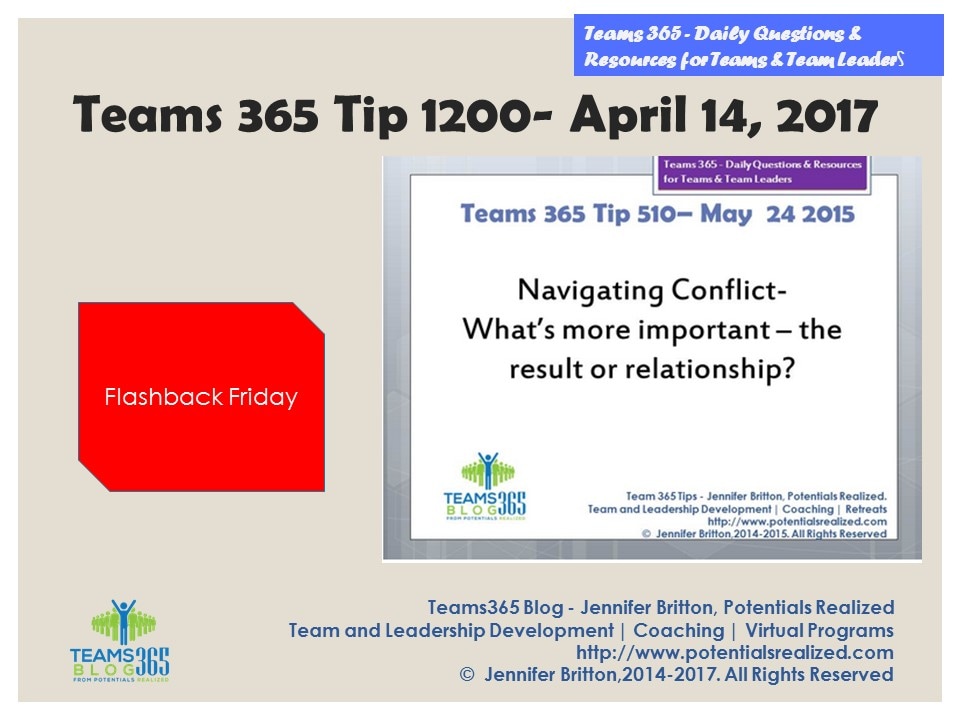Today's post takes us back to a short post #Teams365 #510 where we explore some of the different ways team members may be a approaching conflict, based on how important their relationships or results may be. Take note of these:
Our ability to work through differences and conflict is a key skill for leaders and team members. What we know from research is that complimentary skill sets often make a team strong. In saying this, it may mean that we have different styles which exist, which means that what we value and how we interrelate with the world is different.
What is your natural style in navigating conflict? Different conflict models may have different names for these but we may demonstrate one of many styles including:
Accommodate - Often when the relationship is important but the results are not we will accommodate to enable the other party to have their preferred outcome. In accommodation the other party wins, at our loss.
Compromise – Compromise may be important when the outcome is important for both of us, as is the relationship. In compromise, I win some and you win some, but neither party really win.
Avoid – There are instances where it makes sense to avoid conflict and sweep things under the rug. The challenge and danger with this over time is that the issue can fester, and the small minuscule issue can grow into an elephant. Where is may be appropriate to avoid conflict is when the issue is not important and the relationship is not important. IN avoiding I lose and you lose.
Collaboration - Collaboration takes time and may be the preferred solution when relationships and results are both important. Not every situation warrants collaboration, and as Morten Hanson writes in his books, Don’t collaborate just for collaboration’s sake. While collaboration often takes more time, it can be the best outcome. In collaboration I win and you win.
Compete – We may choose to compete to achieve an important outcome when the results are key and the relationship is not as important. When competing we need to be aware of when it becomes too aggressive. In competition I win and you lose
As you consider these five different styles, what are examples of each one and how you and others would benefit from adopting that approach? When might the approach be beneficial?
For those interested in learning about their own style or supporting team members in this area, one interesting online resource I found was Conflict 911.com/resources
Potentials Realized
Supporting Team Leaders to do their best work, one conversation at a time
Coaching Skills Training | Teamwork | Leadership
Author of From One to Many: Best Practices for Team and Group Coaching(Jossey-Bass, 2013)
(416)996-TEAM (8326)

 RSS Feed
RSS Feed





